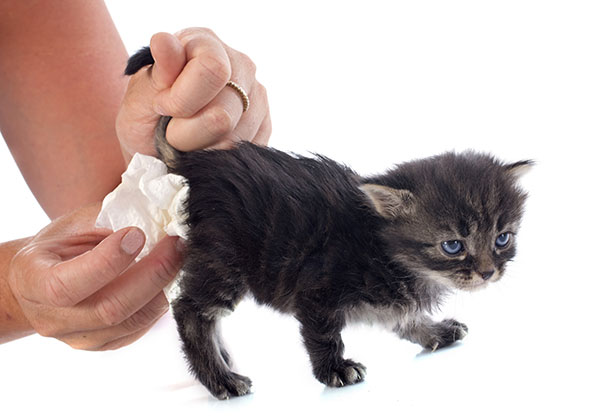Cats are renowned self-groomers who spend a great deal of their waking hours cleaning themselves up.
However, there are certain areas of a cat’s body that are often beyond the reach of their tongue, including the top of their heads and their back end. What happens when your feline friend gets muddy or grimy in these areas? Would you sit back and watch him as he desperately struggles to reach these areas?
I bet you wouldn’t. Instead, you would probably pick the next baby wipes around and give your adorable kitto a decent clean-up.
A good thought right there but before you proceed, you need to ask yourself one very important question, are baby wipes safe for cats?
Answer: Unfortunately, baby wipes are not safe for cats and shouldn’t be used to wipe down a dirty kitto. While baby wipes contain chemicals that are generally harmless to humans, the same cannot be said about our feline friends. If these chemicals come into contact with your cat’s skin, they could trigger a host of allergic reactions. Worse yet, your cat may lick the toxic chemicals off their skin, exposing himself to a range of gastrointestinal complications.
Table of Contents
So, can I use baby wipes on my cat?
Again, the answer is a resounding no. Instead of using baby wipes to clean your cat, there are tons of pet-friendly wipes out there that you can consider.
Why Are Cat Owners Drawn To Baby Wipes?
Many cat owners, particularly those who also have young children, often wonder, ‘are baby wipes okay for cats?’
As we’ve just pointed out, baby wipes are potentially toxic to cats and should be avoided at all costs. But before we delve deeper into the potential toxicity of baby wipes for cats, let’s find out why many cat owners are generally drawn to these products.
For starters, baby wipes are considerably cheaper compared to regular pet wipes. That makes them the preferred option for pet parents looking for more affordable wipes for their furry friends. But as the saying goes, what appears cheap at first glance may prove costly in the long run.
What’s more, veterinary officers always discourage using human products on pets, ranging from people foods to health supplements and even cosmetic products. So, based on this logic alone, baby wipes may not be the best products to use on your cat.
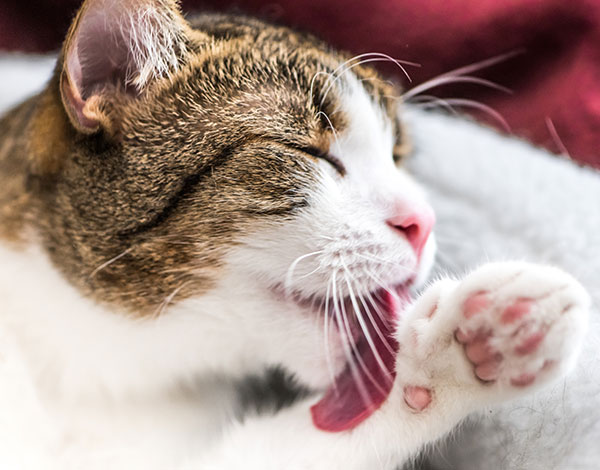
Another reason why many cat owners are drawn to baby wipes is that these products are widely available in most homes, especially homes with small babies. Indeed, baby wipes normally feature high up on a nursing mom’s shopping list.
Now, the fact that baby wipes are generally intended for wiping down babies may fool some cat owners into believing that pet wipes are equally designed for wiping down young pets. Unfortunately, this is not true.
Remember that unlike us, our four-legged friends cannot access all parts of their body. That explains why even a well-groomed mature cat will still show up in your house covered on mud, dirt, grime, or fecal matter from time to time. So, when buying wipes for your baby, it’s important to spare some thought for your cat too.
Another common misconception about baby wipes is that these products are just as soft and harmless to cats as they are to young babies. Cat owners who come from this school of thought often argue that if baby wipes are harmless to the tender and sensitive skin of a young child, then they’re probably also harmless to the skin of their cats.
Well, nothing can be further from the truth. It’s undeniably true that the smooth texture of baby wipes will not hurt your cat. Even the actual action of wiping down your cat will be harmless if you’re reasonably gentle. However, the problem comes with the chemicals contained in the wipes. As we already mentioned, baby wipes contain a host of chemical ingredients that could irritate your cat’s skin or trigger a range of unpleasant gastrointestinal symptoms.
- Ultimate Cleanliness: Our potent pet wipes offer a quick and efficient way to keep your furry friends spotless. Each pack contains...
- Gentle Ingredients: Crafted with natural and gentle ingredients, our wipes are perfect for all pets, including dogs and cats. They...
- Convenient and Portable: Whether at home or on the go, our convenient 3-pack of 80-count wipes makes cleanliness easy. Toss a pack...
Last update on 2025-04-08 / Affiliate links / Images from Amazon Product Advertising API
So, are baby wipes toxic for cats?
Again, baby wipes are highly toxic for cats, and the following section shall shed more light on that.
What Baby Wipes Ingredients Are Considered Most Potentially Toxic To Cats?
Baby wipes contain a wide range of chemical ingredients.
However, the following are the most toxic baby wipes chemicals that your cat should never be exposed to;
1. Detergents
The fundamental role of baby wipes is to clean dirt off your baby. For these products to deliver on that essential role, they must be formulated with effective chemical detergents. One such detergent is Sodium Lauryl Sulfate, commonly abbreviated as SLS.
Now, sodium lauryl sulfate is mostly derived from coconut oil. So, it’s intuitive to imagine that this chemical is naturally safe for baby and cat skin alike. However, that’s not quite the case.
During the manufacturing process, SLS is normally exposed to high levels of the highly toxic triethanolamine (or T.E.A). Since triethanolamine is a renowned carcinogenic, it’s logical to conclude that sodium lauryl sulfate may also carry some carcinogenic properties. But that’s not all.
Triethanolamine is also associated with gene mutations as well as a decline in reproductive health and endocrine functions. Not to mention, the chemical is a major skin irritant.
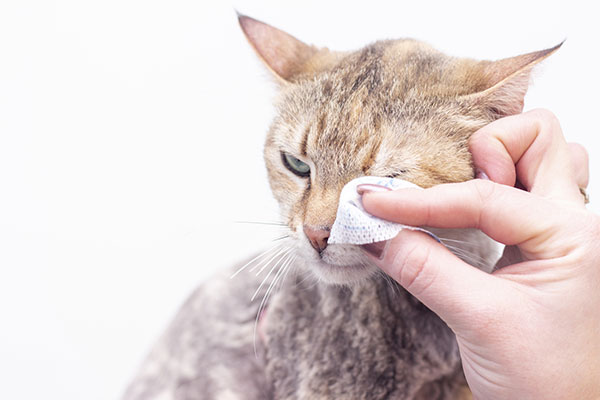
So, whichever way you look at it, sodium lauryl sulfate is potentially harmful to your kitto.
The chemical usually appears in baby wipes products as follows;
- Sodium salt sulfuric acid,
- Sodium salt,
- Sulfuric acid,
- Sodium dodecyl sulfate,
- Aquarex methyl (or simply Aquarex me), or
- Monododecyl ester sodium salt sulfuric acid (or simply Monododecyl ester)
2. Penetration Enhancers
Penetration enhancers, as their name aptly implies, enhance the penetration of the chemical detergents in baby wipes. The two most widely used penetration enhancers include propylene glycol (PG) and polyethylene glycols (PEGs).
Propylene glycol is a chemical compound obtained from petroleum products. PG is an infamous irritant and might cause severe irritation to your cat’s skin, throat, or respiratory system, depending on the nature of exposure. The chemical also linked to kidney problems.
Propylene glycol is normally listed in baby wipes products as methyl glycol, 1, 2-dihydroxypropane, 1, 2-propanediol, or trimethyl glycol.
On the other hand, polyethylene glycols aren’t toxic on their own. However, these chemicals are usually contaminated with other toxic compounds during the manufacturing process. Some of the common PEGs contaminants include 1, 4-dioxane and ethylene oxide, both of which are highly carcinogenic.
3. Preservatives
Baby wipes usually have a shelf-life running into months from the date of manufacture. You can use these products for a considerable period without needing to restock.
However, that advantage comes with a dangerous tradeoff, especially for cat owners who use baby wipes to clean their cats. To ensure that baby wipes last so long, the products are usually formulated with a host of preservatives. And as you shall find, nearly all of these chemical preservatives are potentially harmful to cats.
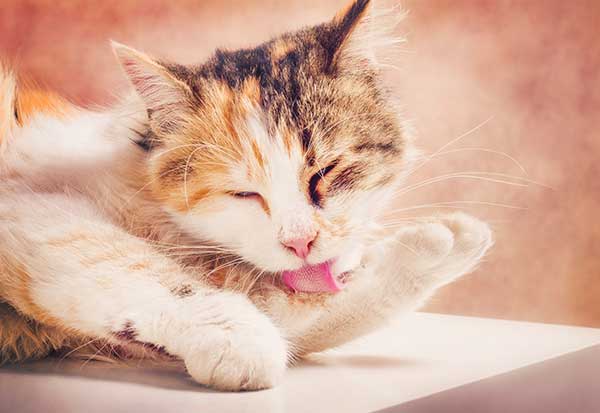
The following are some of the most common preservatives in baby wipes and how they could be injurious to your cat’s health;
a) Parabens
It’s almost impossible to find baby products that don’t contain considerable levels of parabens. As a preservative, parabens are preferred for their incredible ability to prevent fungal or bacterial growth on baby wipes.
However, exposure to significant levels of parabens might cause breast cancer and endocrine issues. The most common parabens used in baby wipes include, Butylparaben, Ethylparaben, Methylparaben, Isobutylparaben, and Propylparaben.
b) Triclosan
Triclosan serves the same purpose as parabens – preventing fungal or bacterial growth in baby wipes.
But just like parabens, triclosan is linked to certain cancers and disruptions of the endocrine system. The chemical is also linked to birth defects and severe skin allergy.
c) Methylisothiazolinone
Methylisothiazolinone may not be as common in baby wipes as parabens and triclosan are. But you should be very worried if you happen to spot this chemical in the ingredients list.
Not only is methylisothiazolinone an annoying skin irritant. The chemical is also linked to brain damage.
d) Iodopropynyl butylcarbamate (IPBC)
Iodopropynyl butylcarbamate, like most common baby wipes chemical preservatives, can induce allergic reactions in your cat. The chemical is also associated with lung toxicity.
In most baby wipes products, Iodopropynyl butylcarbamate is generally listed as follows;
- IBP or IPBC,
- Butyl-3-iodo-2-propynylcarbamate,
- Carbamic acid,
- IODOCARB,
- Germall Plus, or
- Glycacil
- NO-RINSE FORMULA – For a quick & easy deep clean during those in-between days, rely on the berry & coconut no-rinse cat shampoo.
- FRESH & CLEAN – A cat dry shampoo with a gentle and tearless formula that will leave their coat with a berry fresh scent.
- FEEL-GOOD INGREDIENTS – Our mild berry & coconut cat shampoo is derived from natural ingredients such coconut and a botanical...
Last update on 2025-04-08 / Affiliate links / Images from Amazon Product Advertising API
4. Formaldehyde-releasing chemicals
Formaldehyde is a highly toxic chemical that’s associated with certain cancers as well as damage to the central nervous system and reproductive health.
While many manufacturers now tend to shy away from formaldehyde, there are still numerous chemicals that release formaldehyde naturally. So, the fact that a baby wipes product is labeled formaldehyde-free doesn’t necessarily make the product safe.
The following are some of the common formaldehyde-releasing chemicals to look out for in baby wipes;
- 2-bromo-2-nitropropane-1,3-diol,
- 5-bromo-5-nitro-1,3-dioxane,
- Formaldehyde Resin,
- Sodium hydroxymethylglycinate,
- Benzylhemiformal,
- Diazolidinyl urea,
- DMDM hydantoin,
- Glyoxal,
- Methenamine,
- Imidazolidinyl urea,
- Polyoxymethylene Urea, or
- Quaternium-15
5. Fragrance
Nearly all baby wipes are fragranced. The primary function of fragrance is masking the often-unsavory smell of the other ingredients in baby wipes.
However, many fragrances are made using highly poisonous synthetic chemicals like phthalates.
Phthalates are associated with endocrine disruptions and certain cancers, as well as a decline in reproduction health. Even the fresh-smelling lavender, which happens to be common in many baby wipes products, is generally poisonous to cats.
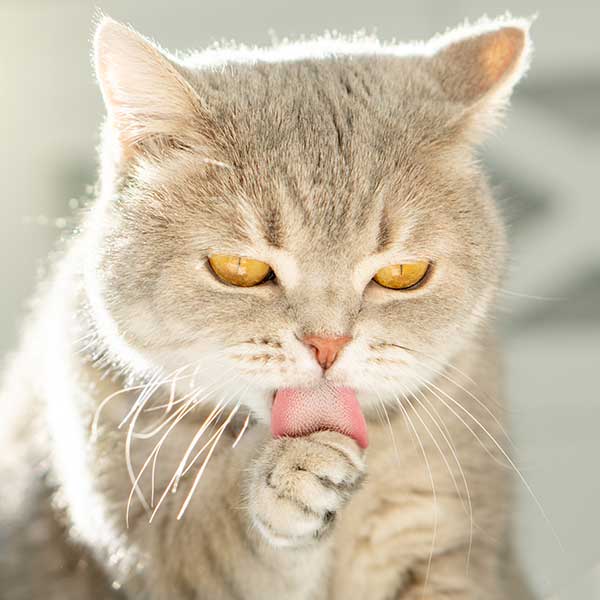
So, are unscented baby wipes safe for cats?
Having just pointed out that fragrances are some of the most toxic chemical ingredients in baby wipes, you may now be wondering, is it safe to use unscented baby wipes on kittens?
Now, unscented baby wipes simply refer to baby wipes that use fragrances to mask the smell of other ingredients in the product.
In essence, unscented baby wipes aren’t necessarily free of fragrances, which means that they still contain significant traces of harmful synthetic compounds like phthalates. Therefore, unscented baby wipes are just as potentially dangerous to your cat as their scented counterparts.
Your best bet here would be to look for fragrance-free as opposed to unscented baby wipes.
6. Other ingredients
In addition to the above-mentioned ingredients, most baby wipes also contain essential oils like neem oil and coconut oil, as well as aloe vera. Note that most essential oils are also poisonous to cats, especially in the case of high exposure.
But what about Aloe vera, are Aloe Vera wipes safe for cats?
The main role of Aloe vera in baby wipes is to keep the skin soft and prevent rashes. While a small amount of this herb will not harm your cat, vets discourage exposing your cat to wipes containing high levels of Aloe vera.
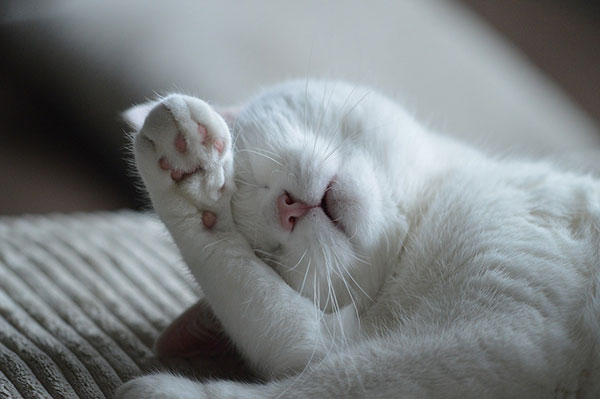
Are There Certain Parts of a Cat’s Body That You Can Clean Using Baby Wipes?
Cats, like all animals, have their most sensitive and vulnerable areas of the skin. While baby wipes are generally harmful to cats, symptoms tend to be more severe depending on the nature of exposure.
Can I use baby wipes on my cat’s bum?
Your cat’s bum is probably the first place you’ll consider cleaning using baby wipes. Every parent understands that baby wipes contain some antiseptic properties. As such, these products might help to keep a cat’s bums clean and free of bacteria that are often transmitted through fecal matter.
Unfortunately, you shouldn’t use baby wipes on a cat’s bums. That’s for the simple reason that these products still contain other chemicals that might irritate the animal’s bums.
If you’re looking for the best wipes to clean your kitto’s bums, you might consider this Waterless Dry Shampoo for Cats. For starters, this product is formulated using natural plant-based ingredients like Aloe Vera, oatmeal, and neem oil to clean and moisturize your cat’s bum, skin, and coat.
The product is also perfect for cats with dry, sensitive skin. And the fact that it’s waterless makes it dry faster, thereby reducing the risks of bacterial growth in your cat’s bums.
- ???? DOES YOUR CAT DREAD BATH TIME? This Rinse-Free Cat Shampoo is ideal for quick refreshments between baths or grooming...
- ???? The LEADING PET GROOMING BRAND - Be part of the countless pet parents who adore Mooncat for pets by using our premier pet...
- ???? CRAFTED WITH HIGHEST QUALITY NATURAL INGREDIENTS - Mooncat dry cat shampoo is carefully formulated with the highest quality...
Last update on 2025-04-08 / Affiliate links / Images from Amazon Product Advertising API
Can you use baby wipes on cats’ ears?
You should never use baby wipes to clean your cat’s ears unless you want to subject the animal to recurring ear problems.
Note that a cat’s ear, especially the inner ear, is one of his most sensitive organs. So, anything that can generally harm his skin will most certainly be injurious to his ears.
The good news is that there are numerous pet-safe wipes which you can use to clean your pet’s ears, including Pet Post Ear Cleaner For Cats.
The first thing you’ll love about Post Ear Cleaner For Cats is that it’s made using 100% ultra-soft cotton pads, which offer maximum comfort when cleaning your cat’s ears. The product also contains all-natural ingredients, making it safe even for cats with sensitive skin.
What’s more, Post Ear Cleaner For Cats is both effective in cleaning wax and debris, as well as eliminating pesky mites from your cat’s ears.
Eartbath Cat Grooming Wipes is another popular pet-safe wipes you can use to clean your cat’s ears. This product comes in extra-thick wipes that can penetrate the innermost components of your cat’s ears for a thorough clean. The product is also fragrance-free, which means that it’s free from toxic phthalates.
- MOST EFFECTIVE EAR WIPES for removing wax, dirt and debris. That means a happier cat and cleaner ears!
- VETS AND GROOMERS AGREE that the Petpost Cat Ear Wipes is safer than traditional treatments that use harsh chemicals or irritants!
- LUXURIOUSLY SOFT COTTON WIPES makes getting to your cat’s ears easy. Say goodbye to measuring capfuls, spilled solution, cheap...
Last update on 2025-04-08 / Affiliate links / Images from Amazon Product Advertising API
Can I use baby wipes on my cat’s eyes?
A cat’s eyes are even more sensitive than his ears. So, if you shouldn’t use baby wipes on your cat’s ears, then you most certainly shouldn’t use them on the animal’s eyes.
Instead of baby wipes, you might want to try Tomlyn Sterile Eye Wash for Cats. Formulated with super-soothing ingredients, Tomlyn Sterile Eye Wash for Cats helps to clean your cat’s eyes without exposing the animal to irritation.
The product also contains powerful moisturizing properties and is particularly recommended for cats with chronic dry eyes. Plus, it’s formulated taking into consideration the regular pH value of a cat’s eyes.
Can I use baby wipes on my cat’s nose?
Again, you shouldn’t use baby wipes to clean a cat’s nose. Besides the obvious risks of irritation, wiping a cat’s nose using baby wipes also comes with risks associated with inhaling the toxic chemicals in the product.
When these chemicals get to your cat’s respiratory tract, they could induce a host of unpleasant side effects, such as chest pains and shortness of breath.
Can I use baby wipes on my cat’s skin?
Much as it may be tempting to clean your cat’s skin using baby wipes, experts strongly advise against doing so. Skin irritation is the immediate concern associated with baby wipes on a cat’s skin.
And since cats are constantly grooming themselves, the animal may also end up licking and ingesting the harmful chemicals in baby wipes, resulting in various gastrointestinal complications. Some of the common side effects of licking baby wipes include nausea and vomiting, diarrhea, dehydration, and abdominal pain.
Instead of using regular baby wipes to clean your cat’s skin, why not consider Pogi’s Grooming Wipes?
Pogi’s Grooming Wipes contain a cocktail of conditioning ingredients, including Aloe vera, Hawaiian Awapuhi, and Vitamin E, which help to clean, moisturize, and condition your cat’s skin. Measuring 8 inches by 9 inches, these wipes are large enough to use for cleaning a cat of any size.
Pogi’s Grooming Wipes are also free of harmful chemicals like alcohol and parabens, making them suitable for use on cats with sensitive skin.
- Conditioning Ingredients - Aloe Vera, Vitamin E, and Hawaiian Awapuhi help clean, freshen and condition while giving the coat a...
- Large Pet Wipes (8 x 9 inches) - Our textured dog grooming wipes are made big enough for even the largest dogs, and thick enough...
- Versatile - When normal baths are not an option, pet parents love using Pogi’s dog cleaning wipes for gentle puppy baths, pets...
Last update on 2025-04-08 / Affiliate links / Images from Amazon Product Advertising API
In addition to Pogi’s Grooming Wipes, Glandex Wipes With Deodorizing Enzymes is another highly effective product that you can use to wipe down your cat’s skin.
What sets this product apart from most cat wipes is that you can use it to clean various areas of the skin, including the nose, eyes, ears, and even anal glands.
Glandex Wipes also contain DeoPlex enzyme that eliminates unpleasant smell, such as that which comes from your kitto’s anal glands. The inclusion of reasonable levels of Aloe vera helps to soothe and restore your cat’s body.
- SUPPORTS HEALTHY ANAL GLANDS & HYGIENE - Convenient soft & durable dog wipe for daily hygiene can be used all over body, on paws...
- DOG WIPES CLEANING DEODORIZING - Contains natural DeoPlex enzyme to help eliminate unpleasant fishy anal gland odors. Glandex dog...
- VETERINARIAN RECOMMENDED - For anal gland odor & health used by professional groomers & vets after emptying anal glands. Paper...
Last update on 2025-04-08 / Affiliate links / Images from Amazon Product Advertising API
Are There Safe Alternatives to Baby Wipes for Cats?
Although baby wipes are potentially toxic to cats, the good news is that there are numerous pet wipes made specifically for your feline friend. We’ve already reviewed some of those products in this article.
Perhaps what you need to know is how to choose the right wipes for your cat. The main criteria would be to look at the brand.
And that may get you wondering, are Huggies baby wipes safe for cats?
Huggies is a brand renowned for manufacturing safe baby products. However, that doesn’t make Huggies baby wipes safe for your feline friend. Remember, these products may be safe for your baby but still potentially injurious to your cat.
If you’re averse to the idea of pet wipes for whatever reason, you can still use a warm damp washcloth to wipe down your cat. Just be sure to use soft washcloths and pet-safe reagents.
So, what kind of wipes can I use on my cat?
The best kinds of wipes to use on your cat are those formulated exclusively for use on pets. Shun all temptation of using baby wipes on your cat.
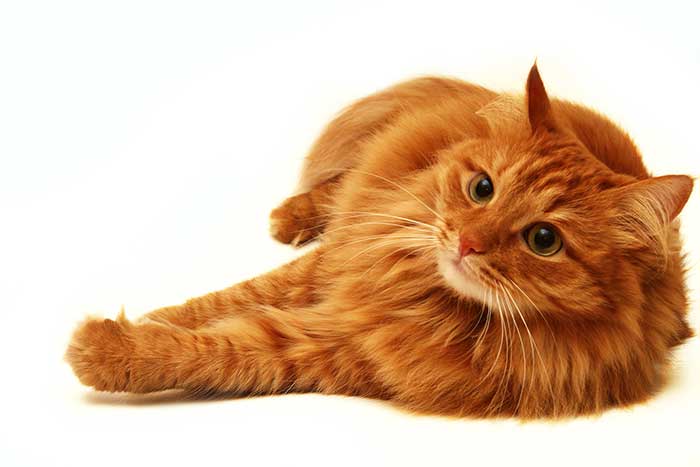
What If You’ve Already Used Baby Wipes On Your Cat?
It’s not unusual to come across a cat owner who has used baby wipes to clean their feline friends and are now wondering, ‘‘I used baby wipes on my cat, should I be worried?’
Yes, you should be worried if you used baby wipes on your cat, even if the cat is not exhibiting any worrying symptoms already.
Ordinarily, you should begin by looking out for any symptoms. But even if the symptoms don’t present themselves, be sure to take the pet for a professional checkup as soon as possible.
Now, you might also have wondered, are baby wipes safe for kittens? To put it simply, anything that’s potentially toxic to cats in general is even more deadly for kittens.
Note that kittens have more sensitive skin and underdeveloped immunity. So, baby wipes might be more disastrous for them compared to mature cats.
Conclusion: So, Do Baby Wipes Hurt Cats?
Yes, baby wipes are potentially harmful to cats and should be avoided at all costs. Instead of baby wipes, it’s recommended to look for pet-safe wipes, insisting on products formulated with ingredients that have been certified as safe for use on pets with sensitive skin.
Checkout Our Favorite Cat Products
1. Best Online Course For Cat Parents
Our favorite: The Cat Language Bible (How to Finally Understand And Speak to Your Cat) – A new form of cat to human communication that many cat owners have dreamed about… but few have actually thought possible.
2. Best Immune Support For Cats
Our favorite: Tomlyn Immune Support – Best Supplement for Cats and Kittens.
3. Best Cat Treats
Our favorites: LIFE ESSENTIALS All Natural Freeze Dried Chicken And Sheba Meaty Tender Sticks – Both are Great.

